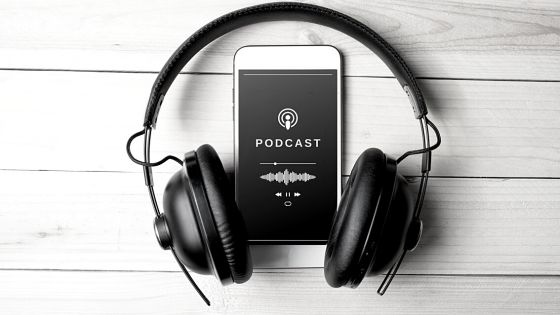Trends come and go all the time. They can change overnight, but they can also stick around once they’re sparked, and podcasts have so far followed that example. The podcast boom we’re witnessing nowadays is nothing short of spectacular, and more and more people not only listen to them but also take part or even decide to start one themselves.

In this article, we’ll explain what makes podcasts such a popular form of content, how it is that almost everyone is currently listening to at least one, and explain all the secrets behind their rise in popularity.
Podcast episodes are ideal for multi-taskers
One of the most common truths about our current lifestyle is that the pace of living seems to speed up each year. It’s not news that current working conditions and other trends cause us to be always on the move, seemingly always multi-tasking.
It is no wonder that once someone starts their own podcast on a topic that interests us, we’re drawn to them. Because listening doesn’t require that much effort, we multi-task and go about our days listening to one of the thousands of podcasts ripe for discovery.
People start a podcast episode on their phones, put on headphones, and go work out. It’s not unheard of for them to do the same when having to do repetitive tasks that fall into the category o house chores or even dull responsibilities at work that require little effort.
One of the most notable multi-taskers to whom podcast listening is like a second nature are drivers of all kinds. When you spend long hours behind the wheel, it’s easy to be almost stupified with boredom, and that’s when the podcasts come in. They’re that noise in the background that not only fills this void of boredom but also scratches that part of the brain that’s not engaged at the moment.
There are so many topics to choose from
Even though the whole concept of a podcast has been alive and kicking for quite a while now, the past few years have given rise to countless players on this metaphorical scene. What happened was that, essentially, the internet did its thing.
Just like you can find pretty much anything on the internet once you put your mind to it, this is now also the case with podcasts. Whatever topic you’re interested in, you can bet that there are already content creators who have got you covered. So many of them started their own podcasts that almost every day introduced new titles.
Spotify alone is home to more than 5 million podcasts, which adds up to roughly 70 million episodes of discussions on every topic you can imagine, from the goofiest to almost TEDTalk’esque ones.
Podcasts build communities
Because humans are social creatures, we often seek out groups or communities to join so that we can feel like a part of some grander family. As it happens, podcast listeners are especially known for creating quite close-knit communities that revolve around the show and keep the conversation going beyond the confines of a podcast episode.
Not only do they keep up with the show and provide a reliable listenership to creators the like, but they also are known to affect the shows themselves. Questions they ask are then brought up during the podcast, and because sometimes they can even take part themselves, there’s an even greater feeling of togetherness and engagement.
One good example is the community built around the currently hugely popular “Whatever” dating podcast, in which the audience is given a chance to participate and add their few cents to the discussion.
They combine entertainment with learning
Even though plenty of people decide to listen to a podcast because of its entertainment value, that’s only half of what they’re really offering. In fact, the format of this genre promotes a type of discussion that is almost academic in its nature.
By inviting several guests, often highly knowledgeable on the topic at hand, the host moderates a discussion that, in the end, becomes a learning experience.
Moreover, the podcasts that tackle more serious topics or focus on being didactic pieces of content as a whole turn out to be more engaging and accessible methods of learning. Considering how educational systems all around the world are attempting to take advantage of new technologies and methods to teach, podcasts present a useful alternative. Informative podcasts might as well become important resources in the future of education.
They’re easily accessible
Lastly, most podcasts are available to anyone interested and free of charge. All that stands between you and discovering a new podcast to listen to are just a few clicks. All you need is a smartphone, a tablet, or a pc, and an app that will act as your podcast library.
Streaming platforms like iTunes or Spotify offer a great many podcasts to choose from, as well as YouTube or Twitch. Thus, you have a wealth of options even if you use just one of these platforms.
In many cases, you can even download the episode to listen later at a more convenient time, which adds a ton of weight to the accessibility argument.
Summing up
If there’s one media format that’s standing head and shoulders above the rest in terms of popularity and accessibility nowadays, it’s a podcast.
Streaming services gave a platform to thousands of content creators, and they, in turn, delivered, giving rise to a form of entertainment that’s become our new favourite past-time activity.
Considering the wealth of options at your disposal, if you haven’t tried listening to podcasts, now’s the time to ditch radio programs and join millions of podcast listeners around the world. There’s a big chance you’ll find something that catches your attention.




















